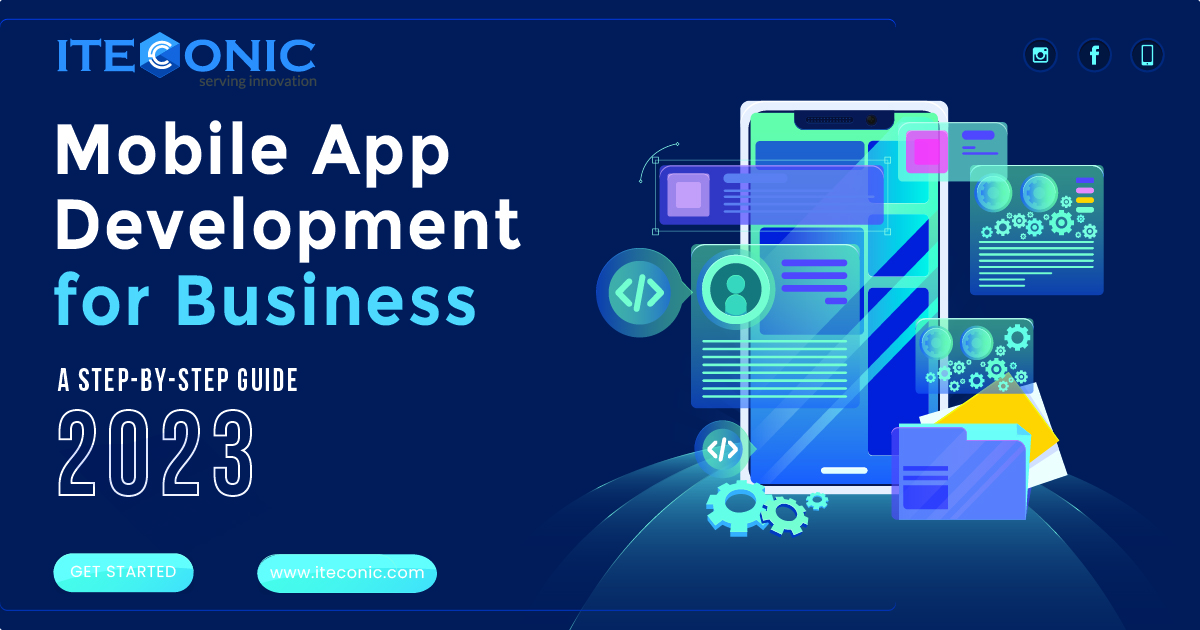2023 Comprehensive Next Big Things for Mobile App Development
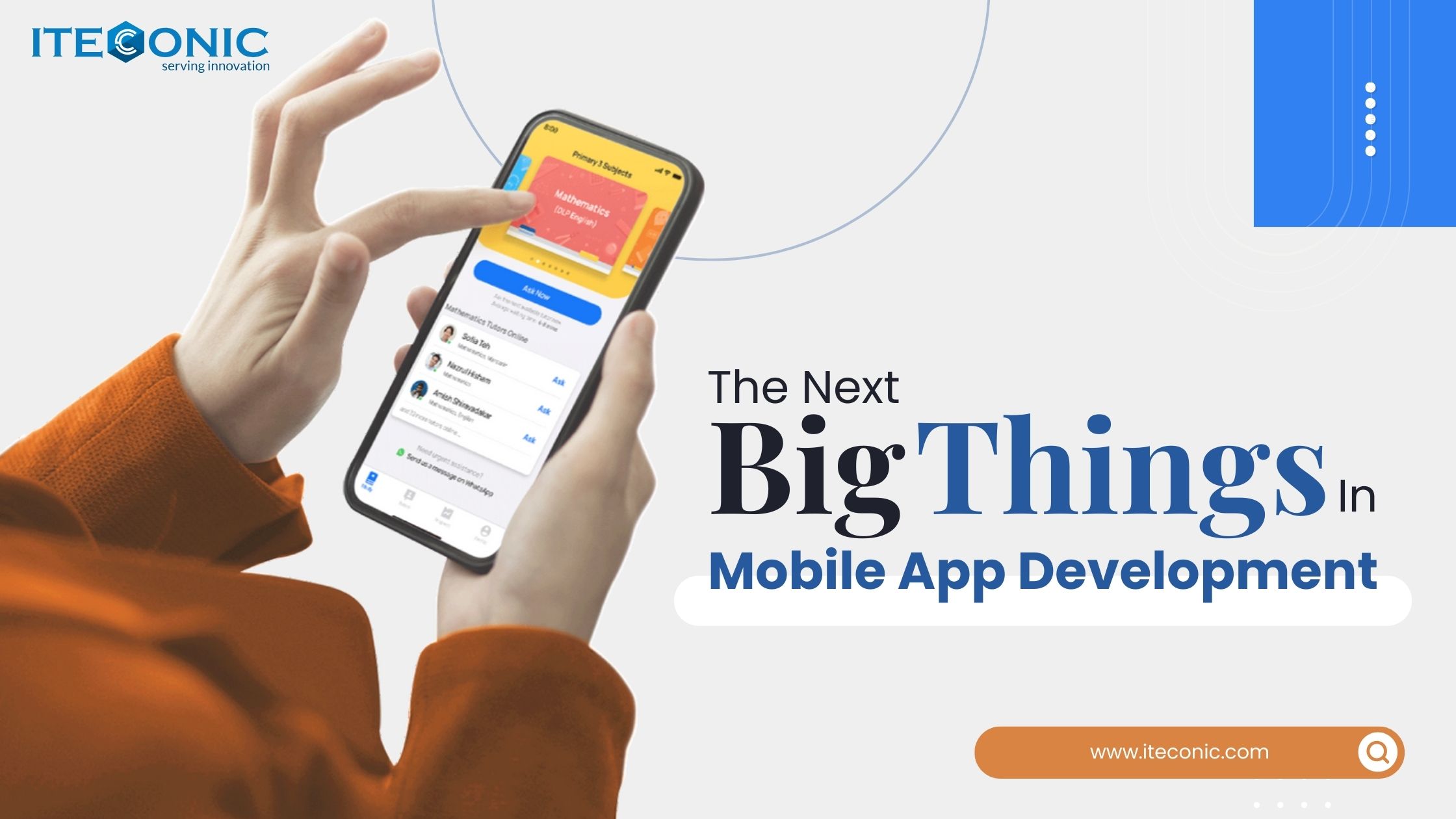
The sector of Mobile app development continues to evolve rapidly, with several exciting trends and technological styles poised to shape the industry's future. Firstly, augmented reality (AR) and virtual reality (VR) are gaining momentum, offering immersive user experiences in gaming, education, and retail. The integration of AI and machine learning is another significant trend, enhancing personalization, predictive analytics, and automation within apps. Progressive web apps (PWAs) are becoming more popular due to their ability to offer app-like experiences without installation. Additionally, the Internet of Things (IoT) is extending into mobile apps, allowing users to control smart devices and access real-time data seamlessly. On top of that security remains a paramount concern, with biometric authentication and advanced encryption becoming standard. Finally, cross-platform development tools like Flutter and React Native are simplifying app creation, reducing development time and costs.
In this dynamic landscape, staying ahead of these trends is crucial for mobile app developers and businesses looking to create cutting-edge mobile experiences. This is why, the best mobile app development companies like ITEconic are known to offer cutting-edge technology and trends that can help to shape up your existing business.
Importance of Trends in Mobile Application Development
Mobile application development trends are essential because they impact user satisfaction, market competitiveness, revenue potential, and the overall success of an app. Developers and businesses that actively monitor and adapt to these trends are better positioned to create successful, user-friendly, and profitable mobile applications.
Here's why staying attuned to these trends is of paramount importance:
- User Expectations: Mobile app users have come to expect the latest features and functionalities. Following trends ensures that apps remain competitive and meet user demands for intuitive interfaces, faster performance, and access to new technologies like AR, VR, or IoT.
- Market Relevance: In the fast-paced world of technology, staying up-to-date with trends ensures that your app remains relevant. Apps that fail to adapt to emerging trends risk becoming obsolete and losing users, and market share.
- Competitive Advantage: Embracing trends can provide a competitive edge. Being among the first to adopt a new technology or feature can help your app stand out from the competition, attract users, and gain a reputation for innovation.
- User Engagement: Many trends, such as AI-driven personalization or gamification, enhance user engagement. Apps that actively engage users are more likely to retain them, resulting in higher user satisfaction and increased revenue through in-app purchases or ad views.
- Monetization Opportunities: New trends often open up monetization opportunities. For example, the rise of mobile commerce and mobile payment integration allows businesses to generate revenue directly through their apps.
- Efficiency and Cost Savings: Trends like cross-platform development tools and cloud computing can streamline the development process, reduce costs, and speed up time-to-market, making app development more efficient and cost-effective.
- Security and Privacy: Staying informed about security trends is essential to protect user data and maintain trust. Implementing the latest security measures ensures your app is less vulnerable to cyber threats and data breaches.
- User Experience: Trends in design, usability, and accessibility are critical for creating a positive user experience. Apps that follow these trends are more likely to receive positive reviews and recommendations.
Trends in mobile application development play a pivotal role in shaping the industry and driving innovation.
Also Read - Meditation App Development Cost Explained!
List of Mobile App Development Next Big Thing
The future of mobile application development promises to be both exciting and transformative, with several emerging trends and technologies poised to become the next big things in the industry:
- 5G Integration: The rollout of 5G networks promises faster download and upload speeds, reduced latency, and improved network reliability. Mobile apps can leverage 5G to deliver high-quality video streaming, augmented reality experiences, and real-time data sharing. This will be particularly significant for industries like gaming, healthcare (telemedicine), and autonomous vehicles.
- AI and Machine Learning: Artificial intelligence and machine learning algorithms are being used to create more innovative, more personalized mobile apps. For instance, AI can analyze user behavior to recommend content, automate customer support through chatbots, and enhance image recognition capabilities.
- Augmented Reality (AR) and Virtual Reality (VR): AR and VR technologies are transforming the way we interact with digital content. Mobile apps are utilizing AR for navigation, virtual try-ons in e-commerce, and educational simulations. VR, on the other hand, offers immersive gaming experiences and virtual meetings, with applications in industries like real estate for virtual property tours.
- Internet of Things (IoT): The IoT ecosystem is expanding rapidly, and mobile apps are central to managing IoT devices. Mobile apps can control smart thermostats, security cameras, wearable fitness trackers, and even connected cars. This trend enables users to monitor and control their IoT devices from anywhere.
- Progressive Web Apps (PWAs): PWAs combine the best of web and app experiences. They load quickly, work offline, and provide a seamless user experience. Retailers, news outlets, and service providers are increasingly adopting PWAs to engage users without the need for app downloads.
- Blockchain Integration: Blockchain technology enhances security and trust in mobile apps. It's especially beneficial for apps handling sensitive data, such as financial transactions or healthcare records. Blockchain can ensure data integrity and streamline processes like supply chain tracking.
- Voice and Gesture Recognition: As natural language processing and gesture recognition technologies improve, mobile apps are becoming more intuitive to use. Users can perform tasks by speaking or making gestures, reducing the need for traditional touch interfaces.
- Edge Computing: Edge computing brings data processing closer to the source, reducing latency and enhancing real-time responsiveness. This is crucial for applications like autonomous vehicles and augmented reality, where split-second decisions are vital.
- Biometric Authentication: Biometric authentication methods, such as facial recognition and fingerprint scanning, offer secure and convenient ways for users to access apps and sensitive data. This trend enhances mobile app security.
- Cross-Platform Development Tools: Cross-platform development frameworks like Flutter and React Native allow developers to write code once and deploy apps on multiple platforms.
- Sustainability and Green Tech: With a growing focus on environmental sustainability, mobile apps are being developed to promote eco-friendly practices. For example, apps can help users find green transportation options, reduce energy consumption, or make environmentally conscious purchasing decisions.
Embracing these trends can help developers and businesses create innovative mobile apps that meet the evolving needs and expectations of users while staying competitive in the dynamic mobile app development landscape.
Trending Now - A Guide to Install React Native on Mac
Need of Trends in the Mobile Application Industry
The ever-evolving mobile application industry necessitates a keen awareness of current trends for several compelling reasons. Firstly, user expectations are continually on the rise. Users demand apps that offer the latest features, functionalities, and cutting-edge technologies. Staying up-to-date with trends ensures that apps remain competitive, and engaging, and meet these evolving demands, enhancing user satisfaction.
Secondly, trends drive market relevance. In a fiercely competitive landscape, apps that fail to adapt to emerging trends risk losing user interest and market share. Being in tune with what's trending helps ensure an app's continued relevance and competitiveness.
Moreover, trends often translate into a competitive advantage. Early adoption of a new technology or feature can set an app apart from competitors, attracting users and establishing a reputation for innovation.
Additionally, trends often lead to new monetization opportunities. Emerging technologies and user behaviors can create novel revenue streams, such as in-app purchases, advertising, or premium subscriptions.
Lastly, staying informed about trends is vital for security and privacy. New threats and vulnerabilities emerge regularly, and trends in cybersecurity help developers protect user data and maintain trust.
Keeping a finger on the pulse of trends is imperative in the mobile application industry. It ensures an app's relevance, competitiveness, user satisfaction, revenue potential, and data security, all of which are crucial for success in this dynamic and rapidly evolving landscape.
How ITEconic Will Help Businesses To Follow Latest Mobile App Development Trends
ITEconic, a reputable mobile application development company, can assist businesses in staying aligned with the latest mobile app development trends in 2023 several key ways:
- Trend Analysis: ITEconic maintains a dedicated team of experts who continually monitor the mobile app development landscape. They analyze emerging trends, technologies, and consumer preferences. This analysis helps businesses identify which trends are relevant to their industry and target audience.
- Consultation and Strategy: ITEconic offers consultation services to businesses. They can help formulate a mobile application development strategy that integrates the latest trends effectively. This strategy may include recommendations on incorporating features like AI, AR, or blockchain based on the business's specific goals.
- Custom App Development: The team specializes in custom app development. They can design and build mobile apps that leverage the latest trends in a way that aligns with the business's objectives. Whether it's creating an app with AI-driven personalization or integrating AR features, we can develop tailored solutions.
- Cross-Platform Development: ITEconic has expertise in cross-platform development frameworks like Flutter and React Native. This approach allows businesses to reach a broader audience by developing apps for multiple platforms simultaneously, thereby keeping up with the trend of cross-platform development.
- Testing and Quality Assurance: We place a strong emphasis on quality assurance and testing. They ensure that the app functions flawlessly with the latest technologies, minimizing bugs and optimizing performance.
- Security Measures: Our team of developers prioritizes security, staying updated on the latest security trends and implementing robust measures to protect user data and app integrity.
- Post-launch Support and Updates: Following the launch of an app, ITEconic provides ongoing support and updates. This ensures that the app remains relevant and continues to function effectively as new trends emerge. We offer expertise in UX design to ensure that the app is not only technologically advanced but also user-friendly, adhering to the latest design trends for an optimal user experience.
- App Store Optimization (ASO): We can assist businesses in optimizing their app listings on app stores, ensuring discoverability and visibility among users searching for apps relevant to the latest trends.
ITEconic’s comprehensive approach to mobile application development, including trend analysis, strategy formulation, custom development, and ongoing support, empowers businesses to embrace the latest mobile app development trends effectively and deliver innovative, competitive, and user-centric mobile applications.
To Conclude Everything
In conclusion, the future of mobile app development is a landscape teeming with innovation and opportunity. The next big things in this industry are poised to reshape the way we interact with technology and the world around us.
From the lightning-fast capabilities of 5G to the immersive experiences of AR and VR, mobile apps are becoming more powerful and engaging than ever before. AI and machine learning are driving personalization and automation, while IoT integration is turning our smartphones into control centers for our connected lives.
Progressive web apps offer the convenience of native apps without the need for installation, and blockchain is enhancing security and transparency. Voice and gesture recognition are making user interactions more natural and intuitive, and edge computing is bringing real-time processing to the forefront.
Biometric authentication ensures our apps remain secure, while cross-platform development tools streamline the creation process. Sustainability and green tech are becoming essential considerations as we work toward a more eco-conscious future.
To thrive in this dynamic environment, developers and businesses must stay abreast of these trends, adapt to changing user expectations, and leverage these emerging technologies to create cutting-edge mobile apps that captivate users, meet market demands, and drive success in the ever-evolving mobile app development landscape.
Frequently Asked Questions
Q1. What’s the future of application development for businesses?
We can expect even faster and more immersive experiences with 5G, augmented reality (AR), and virtual reality (VR). Artificial intelligence (AI) will continue to enhance personalization and automation, while the Internet of Things (IoT) will make apps central to managing connected devices. Progressive web apps (PWAs) will offer app-like experiences through browsers, and blockchain will provide enhanced security.
Q2. What’s the next big thing you can expect in apps?
Apps will play a crucial role in creating and navigating this immersive environment, enabling new forms of entertainment, education, collaboration, and commerce. Augmented reality, virtual reality, and AI-driven experiences will be at the forefront, redefining how we interact with digital content and each other in this exciting and evolving landscape.
Q3. What are the top 9 application development trends in 2023?
List down the top 9 application development trends you should know –
- 5G Integration
- Augmented Reality and Virtual Reality
- Machine Learning
- Internet of Things
- Cross-platform/Hybrid development
- Blockchain Integration
- Voice and Gesture Recognition
- Cybersecurity and Privacy
- Progressive Web Apps
Q4. Why mobile apps are better for functioning?
Mobile apps offer several advantages, including faster access, enhanced user experiences, offline functionality, and device-specific features. They can utilize smartphone capabilities like GPS, cameras, and push notifications, delivering tailored, interactive, and convenient solutions for users. Additionally, apps are typically more secure and stable compared to web-based experiences.
Q5. How do mobile applications change the world?
Mobile apps have revolutionized how we work, communicate, and access information. They've transformed industries, from healthcare to finance, providing convenience, efficiency, and connectivity. Apps connect people worldwide, promote innovation, and drive economic growth. Their impact on daily life is profound, shaping the way we live and interact with the world.
.jpg)

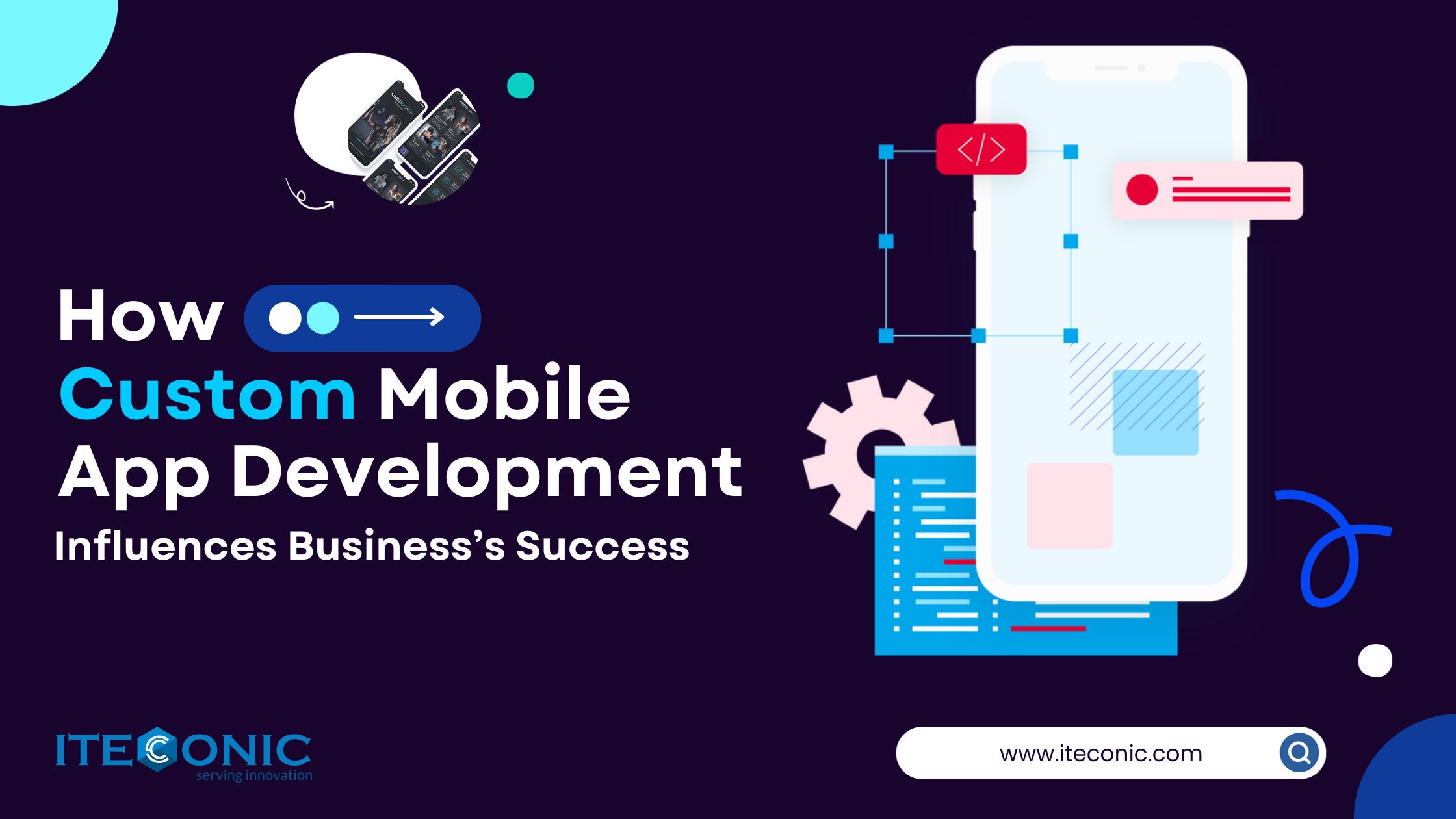
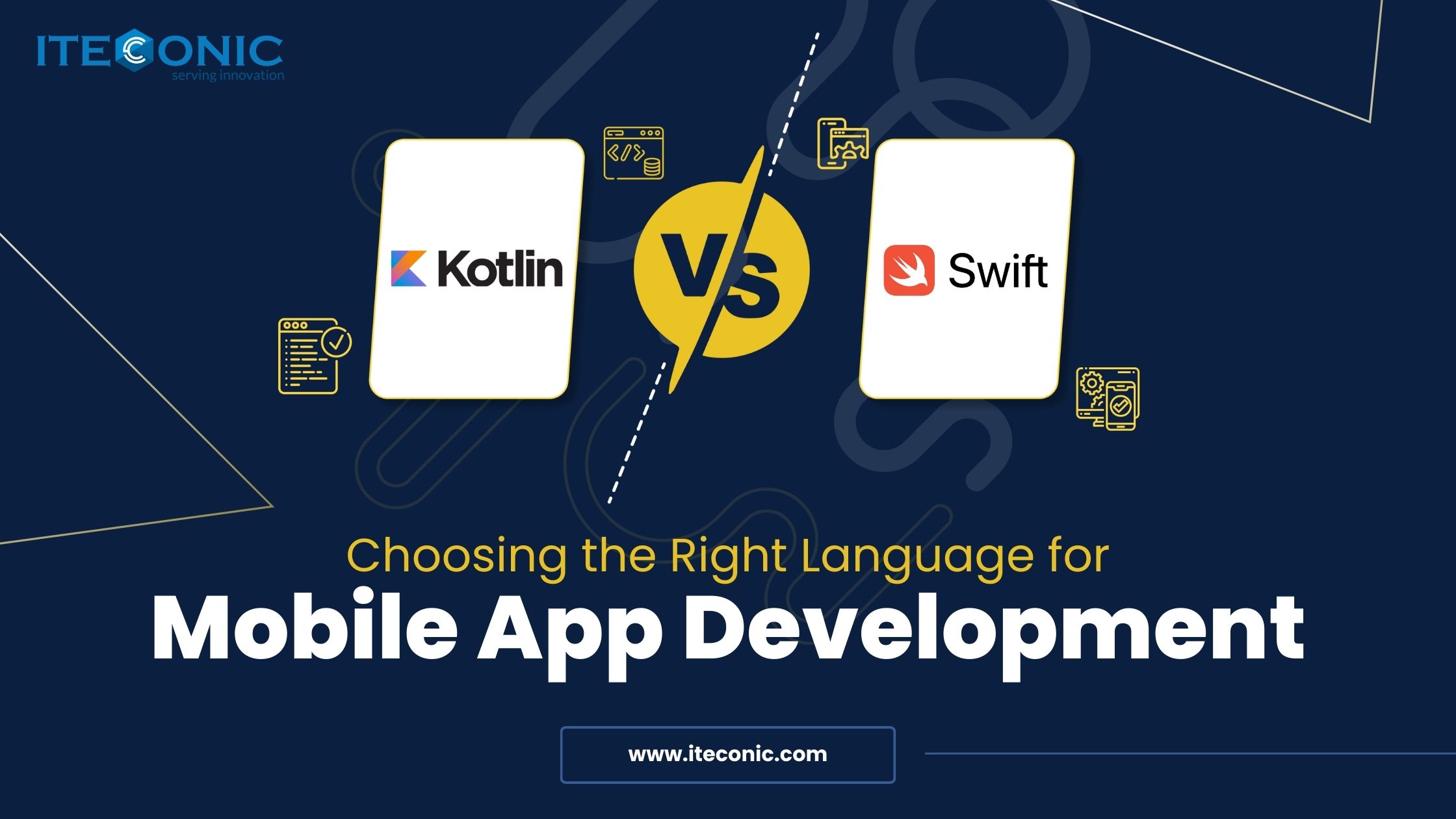
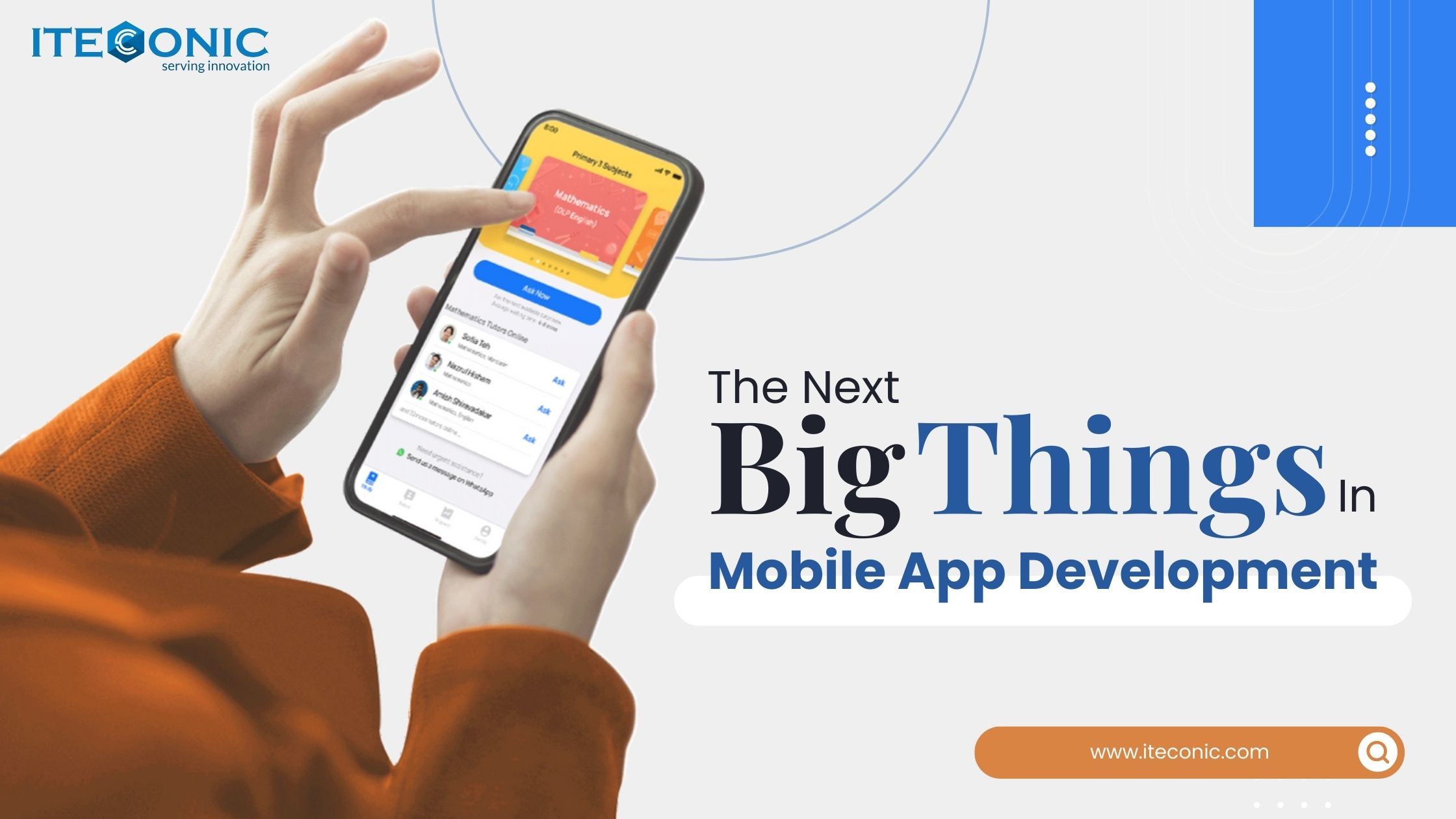
.jpg)
.jpg)
.jpg)
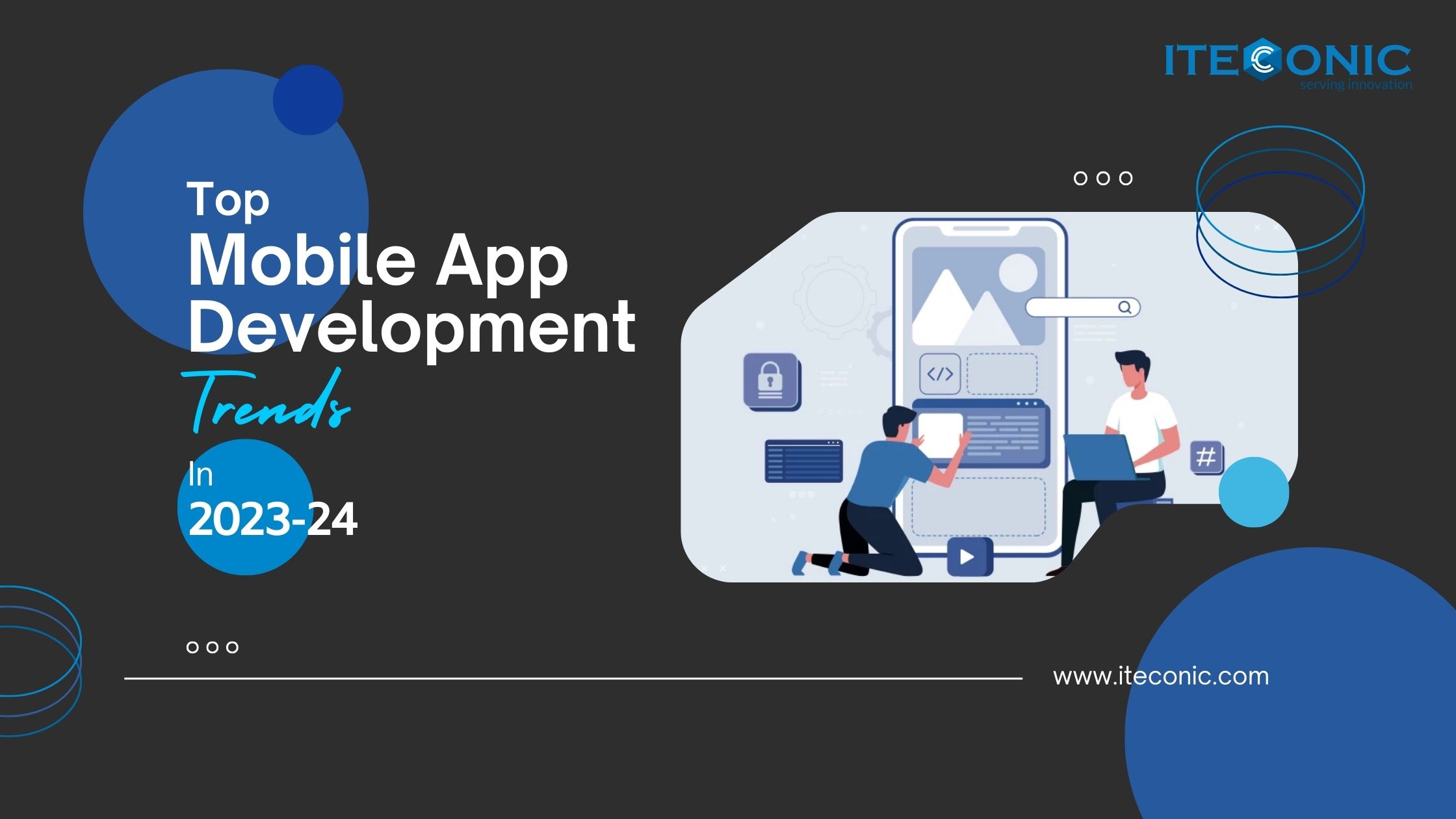
.jpg)
 (1).jpg)
.jpg)
.jpg)

 (1).jpg)

.jpg)
 (2).jpg)
.jpg)
.jpg)

.jpg)
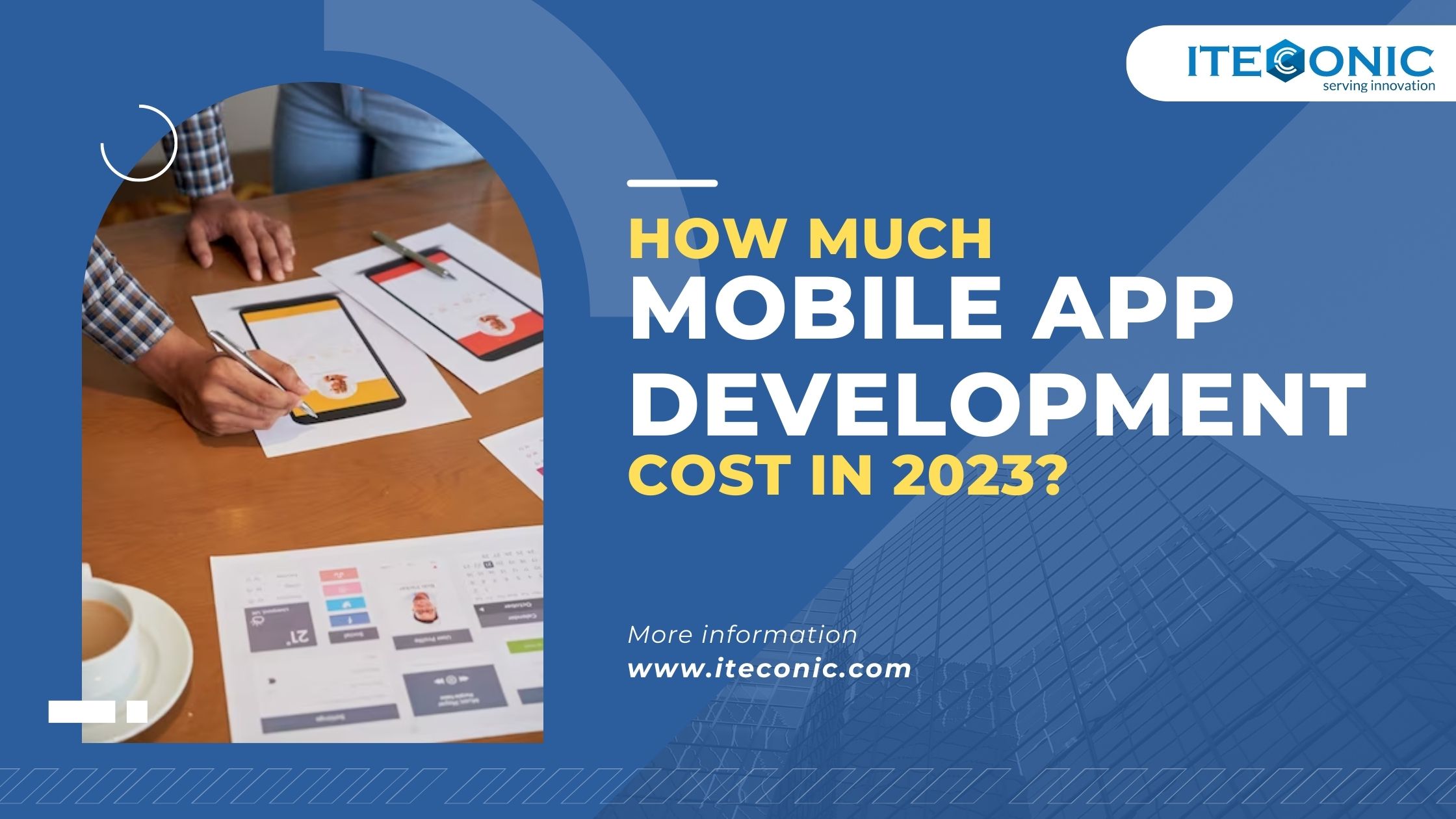


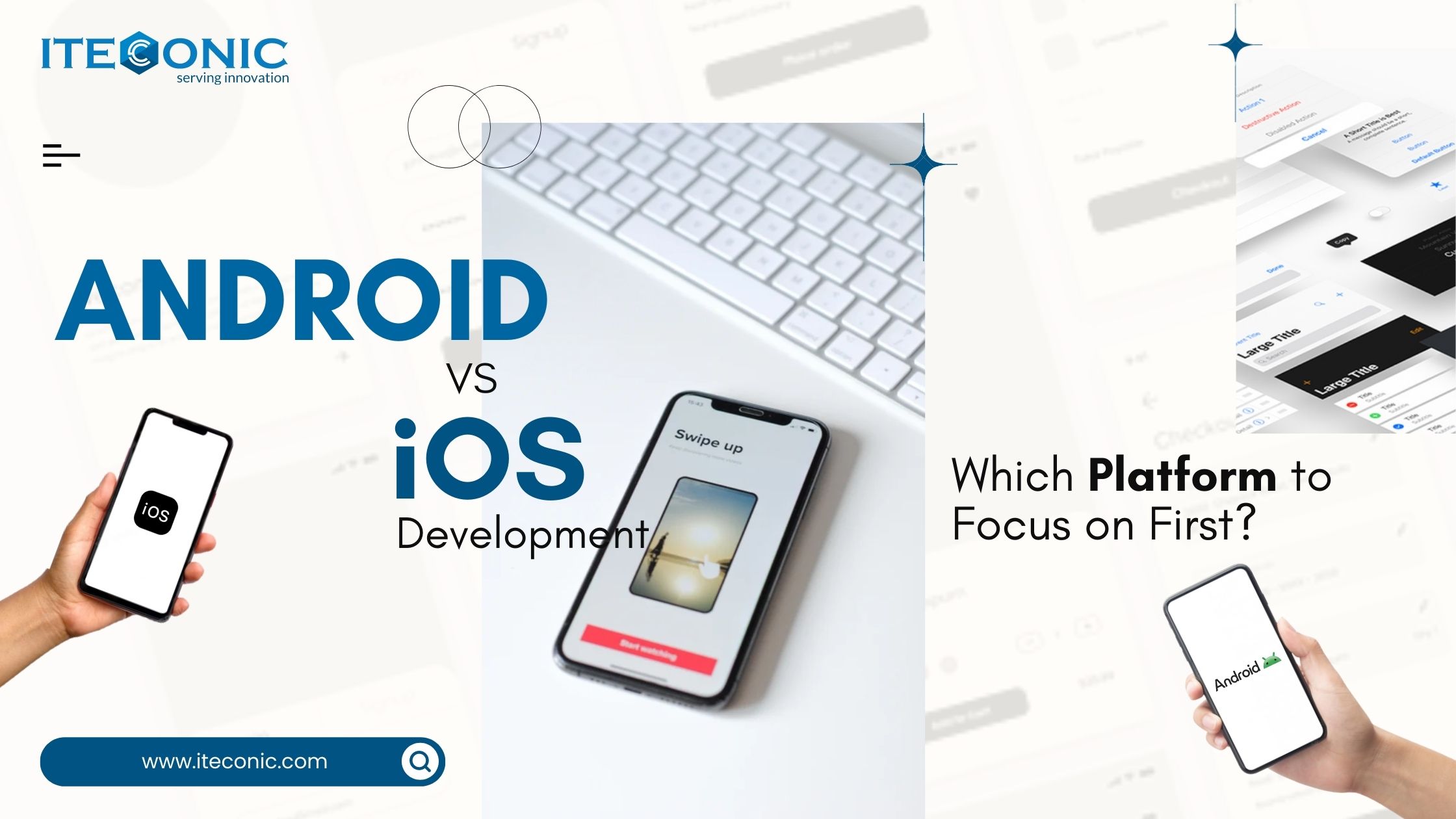

.jpg)
.jpg)
.jpg)
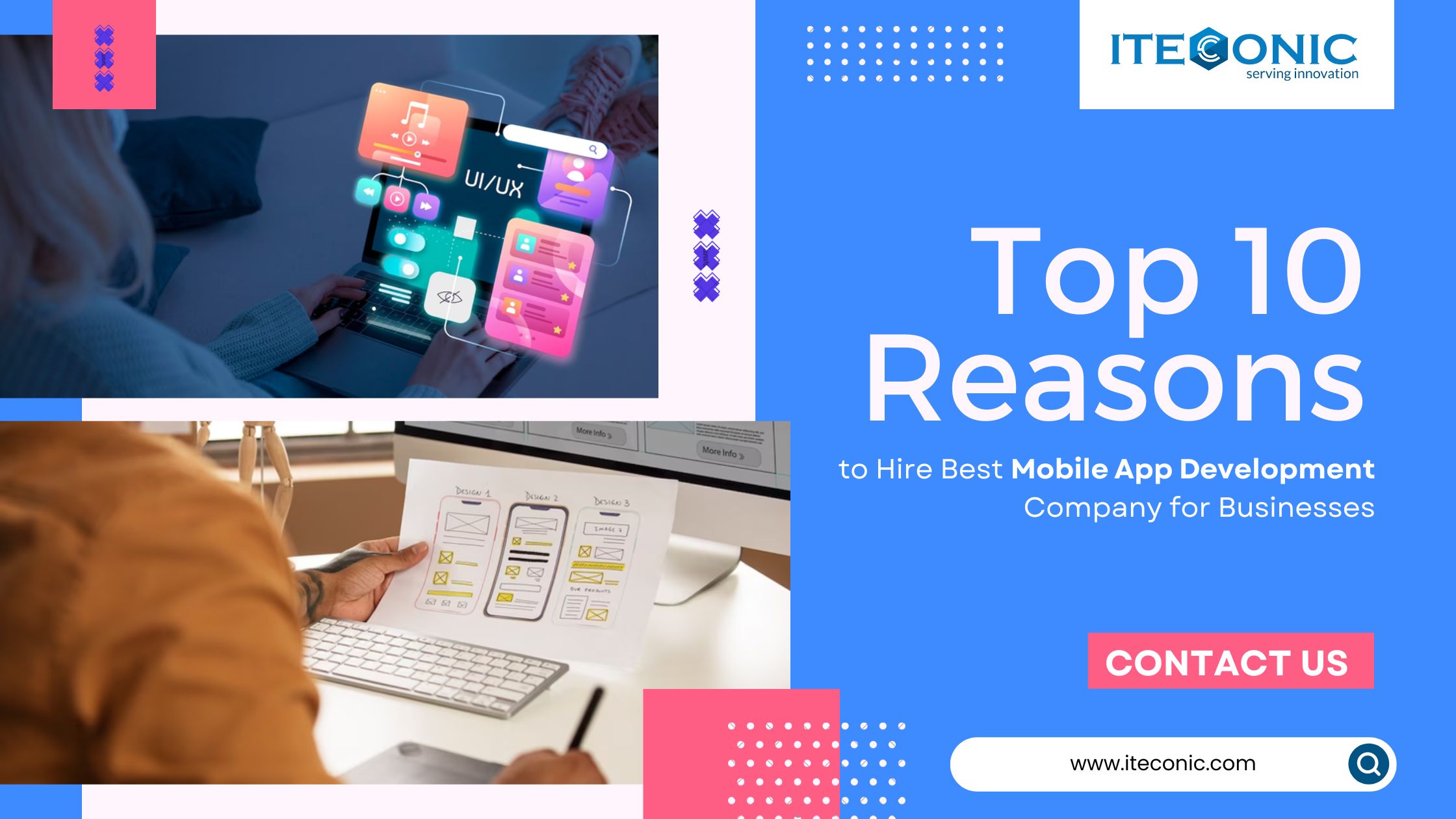
.jpg)
.jpg)
.jpg)
